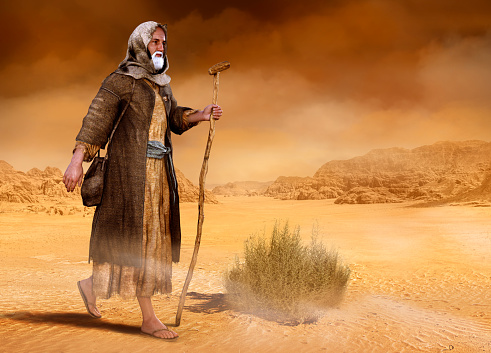
BY PROSPER TINGINI
It is a common occurrence across many families, including my own, where some personal differences may escalate into bitter enmity between siblings or other close relatives.
People will always think, act or react differently on any given issue. It is a fact of life that opinions will vary among people on any topic.
If not handle carefully, disagreements on views or of any other issues may turn nasty.
In our scriptures, the first two siblings of humanity, Cain and Abel, are a good example of how a simple jealousy towards another can generate an intense hatred that can transform into a murderous rage. Genesis Chapter 4 carries the story of how the elder brother, Cain, was resentful of the favours God showed towards his younger brother, Abel’s offerings.
In a well planned willful act of vengeance, Cain killed his innocent brother for other reason other than that of a deep-rooted jealousy. Such a state of affairs is common among mankind and kinsmen.
We also have an immediate good example in our scriptures of how blood relatives can navigate some situations that have a potential to cause a rift that could explode into a warfare. Genesis 13 tells us of the story of Abraham and Lot (Abram’s brother’s son).
The peacemaker story reads: Now Abram was very rich in cattle, in silver and in gold. And he journeyed on from the Negeb as far as Bethel and Ai, to the place where he had made an altar at the first; and there Abram called on the name of the Lord. And Lot, who went with Abram, also had flocks and herds and tents, so that the land could not support both of them dwelling together; for their possessions were so great that they could not dwell together, and there was strife between the herdsmen of Abram’s cattle and the herdsmen of Lot’s cattle. At that time the Canaanites and the Perizzites dwelt in the land.
- Chamisa under fire over US$120K donation
- Mavhunga puts DeMbare into Chibuku quarterfinals
- Pension funds bet on Cabora Bassa oilfields
- Councils defy govt fire tender directive
Keep Reading
Then Abram said to Lot, “Let there be no strife between you and me, and between your herdsmen and my herdsmen; for we are kinsmen. Is not the whole land before you? Separate yourself from me. If you take the left hand side, then I will go to the right; or if you take the right hand side, then I will go to the left”.
Lot lifted up his eyes, and saw that the Jordan valley was well watered everywhere like the garden of the Lord, like the land of Egypt, in the direction of Zoar; this was before the Lord destroyed Sodom and Gomorrah. So Lot chose for himself all the green Jordan valley and Lot journeyed east; thus they separated from each other (in peace). Abram dwelt in the land of Canaan, while Lot dwelt among the cities of the valley and moved in tent as far as Sodom. Now the men of Sodom were wicked, great sinners against the Lord.
Then the Lord said to Abram, after Lot had separated from him, “Lift up your eyes, and look from the place where you are, northward and southward and east ward and westward; for all the land which you see I will give to you and to your descendants forever. I will make your descendents as the dust of the earth, your descendants also can be counted. Arise, walk through the length and breadth of the land, for I will give it to you”.
So Abram moved his tent, and came and dwelt by the oaks of Mamre, which are at Hebron; and there he built an altar to the Lord (end of quote).
These are two contrasting stories, in which the elders of two separate pairs of kinsmen handled their situations differently. In the first case of Cain and Abel, the elder brother decided that the solution to a visualized problem was through the extermination of the perceived opponent, Abel.
That’s Cain is answer to his jealousy was to kill his sibling, Abel. We have the Cains among us, who cannot withstand the prosperity or blessings bestowed upon their own kinsmen.
If they do not get the favours or blessedness themselves, then they will seek to terminate whoever of their kinsmen gets such a consecration from the Lord our God.
They want to be the ones in the lead always, in whatever sphere of life they cherish. To them, if it’s not them then it is nobody else deserves to be blessed or favoured.
In Abram and Lot’s instance, the elder of the two humbled himself when faced with a potential rivalry. Abram gave Lot the first choice to pick his preferred land and pastures. As a ‘usual’ human practice, Lot chose the best lands for himself, leaving his uncle Abram with the remnants of what appeared to be less fertile areas of grazing lands.
However what appeared very green in Lot’s eyes and his selfish picking of the posh lands would later come back to hound him.
The city of Sodom fell within his dwellings. Because of the sins of the people living in that city, the Lord would eventually destroy it by a raging fire.
Again his humble and faithful uncle, Abram, would save Lot and his family from that destruction (Genesis 19).
We need peacemakers like Abraham within our families; wise people within us who are not bound by jealousy or enmity towards their kinsmen.
We need within humanity people who are bound by the wisdom to manoeuvre difficult situations, to negotiate causes of rivalries within families to establish peaceful co-existence.
Take note that in any sibling or kinsmen rivalries, those outside watching from the terraces will be gossiping badly about such behaviours, either mocking or laughing at you. The Canaanites and Perizzites who dwelt initially in the same lands as Abram and Lot would have loved to see the two kinsmen at each other’s throats, fighting for mere grazing land. Blood is thicker than water, gold or land. Thanks to Abraham for that lesson. It is then not surprising that in return for his humbleness, the Lord our God then blessed Abram and his descendants with a special gift of all the lands of Canaan and beyond, which we call The Promised Land, in our biblical terms.
We need Jesus Christ to be the peacemaker in all disputes between kinsmen, people of the same blood.
Hence in Mathew 5:21-26, he spoke about the new law, saying, “You have heard that it was said to the men of old, ‘You shall not kill; and whoever kills shall be liable to judgement. But I say to you that everyone who is angry with his brother shall be liable to judgement; whoever insults his brother shall be liable to the council, and whoever says, ‘You fool?’ shall be liable to the hell of fire. So if you are offering your gift at the altar, and there remember that your brother has something against you, leave your gift there before the altar and go; first be reconciled to your brother, and then come and offer your gift. Make friends quickly with your accuser, while you are going with him to court, lest your accuser hand you over to the judge, and the judge to the guard, and you be put in prison”.
- Prosper Tingini is the president of the Children of God Missionary Assembly. Registration in progress for those who wish to undertake Bible Studies or train as Ministers of Religion. Contact 0771 260 195 or email: [email protected]










